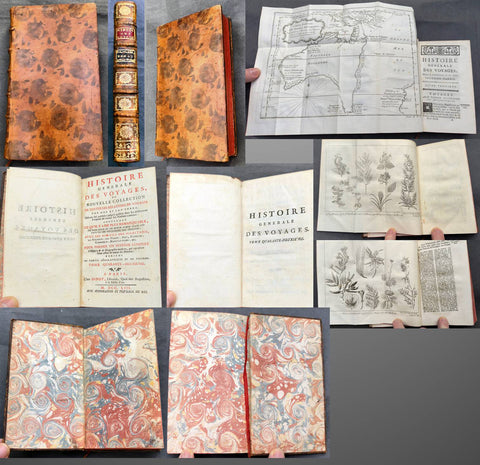
Denis Diderot (1713 – 1784 )
Denis Diderot (1713-1784) was a French philosopher, writer, and editor, best known for being the chief editor of the Encyclopédie, one of the most important works of the Enlightenment period.
Born in Langres, France, Diderot was the son of a master cutler. He was educated at a Jesuit college in Langres, where he was recognized for his intellectual abilities. However, he did not want to follow his father's footsteps and become a cutler, so he moved to Paris to study law. He quickly became interested in philosophy and literature, and soon became a freelance writer.
In 1745, Diderot was introduced to Jean le Rond d'Alembert, who was working on a plan for a comprehensive dictionary of the sciences, arts, and crafts. Diderot was immediately interested in the project and began to collaborate with d'Alembert. This led to the creation of the Encyclopédie, a massive work that aimed to collect and organize all of the knowledge of the day.
Diderot was the chief editor of the Encyclopédie, which was published between 1751 and 1772. The work was banned by the French government and the Catholic Church, as it contained articles that were critical of religion and government. However, the Encyclopédie was widely read and influential, and played a significant role in spreading Enlightenment ideas.
In addition to his work on the Encyclopédie, Diderot was a prolific writer and philosopher. He wrote on a wide range of subjects, including art, literature, politics, and religion. His most famous work is the novel Jacques the Fatalist, which he wrote in the 1770s.
Diderot was a controversial figure in his time, as he was critical of many aspects of French society, including the church, the monarchy, and the legal system. He was briefly imprisoned in the 1740s for writing a satire that criticized the French government. Despite this, he continued to write and publish throughout his life.
Diderot died in Paris in 1784, at the age of 70. He is remembered as one of the most important figures of the Enlightenment, and his ideas have had a lasting impact on philosophy, literature, and politics.
Encyclopedia:The Encyclopédie was a monumental work of the Enlightenment, published in France in the mid-18th century. It was edited by Denis Diderot and Jean le Rond d'Alembert, and aimed to bring together all knowledge of the time in a single work. The Encyclopédie contained articles on a wide range of subjects, including science, philosophy, history, politics, and the arts.
The work was initially conceived as a French translation of Ephraim Chambers's Cyclopaedia, but quickly grew into a much larger and more ambitious project. The editors recruited a team of writers and experts to contribute articles, and the resulting work was published in 28 volumes between 1751 and 1772.
One of the most notable aspects of the Encyclopédie was its emphasis on reason, scientific method, and critical thinking. The articles often challenged traditional beliefs and superstitions, and championed the ideas of the Enlightenment. The Encyclopédie was also notable for its inclusion of illustrations, many of which were created by some of the most prominent artists and engravers of the time.
The publication of the Encyclopédie was not without controversy. The work was criticized by the Church and other conservative groups, who saw it as a threat to traditional values and beliefs. Despite these challenges, the Encyclopédie was widely read and influential, and helped to shape the intellectual and cultural landscape of Europe in the 18th century.
The Encyclopédie included a number of maps and charts, particularly in its sections on geography and astronomy. Diderot worked closely with cartographers and astronomers to ensure the accuracy and clarity of these maps.
One notable example of Diderot's involvement in cartography was his collaboration with the astronomer Joseph-Nicolas Delisle on a map of the constellations. Delisle had originally created the map for the Académie des sciences, but Diderot suggested improvements to the design and worked with the engraver to create a more detailed and accurate version for the Encyclopédie.
Diderot also oversaw the creation of a number of maps and charts for the Encyclopédie's sections on geography and exploration. These included maps of Europe, Asia, and the Americas, as well as charts of ocean currents and winds. While Diderot did not create these maps himself, he was responsible for ensuring their accuracy and overseeing their production.
Overall, while Diderot's involvement in cartography was relatively minor compared to his contributions in other areas, his attention to detail and commitment to accuracy helped to ensure that the maps included in the Encyclopédie were of the highest quality.
Denis Diderot (1)
1753 Diderot & Bellin Antique Atlas History of Early Voyages to Australia w/ Map
Antique Atlas
- s Diderot & Nicolas BellinTitle : Histoire Generale Des Voyages ou Nouvelle Collection De Toutes Les Relations de Voyages Par Mer et Par Terre, Qui ont ete publiees jusqu a present dans les differentes Langues de toutes les nations connues.....Tome Quarante - Deuxieme A Paris Chez Didot....MDCCLIII
(General History of Travels or New Collection of all Travel reports by Sea and land, which have been published unitl now in the different languages of all known nations....volume 42...Didots...1753) - Ref #: 51002
- Size: 12mo (7in x 4in)
- Date : 1753
- Condition: (A+) Fine Condition
Description:
This original antique atlas of early voyages of discovery to the South Seas and significantly Australia was published by the famous French writer & publisher of the French Enlightenment Denis Diderot in his significant publication Historie Generale Des Voyages in 1753 - dated.
The atlas contains 381 pages, one of the earliest complete copper plate maps of Australia (13in x 10in) by Nicolas Bellin along with 2 copper plate prints of plants by Dampier in the late 17th century. The atlas has original marbled end papers contained within contemporary mottled calf bindings, gilt spines in compartments with morocco labels.
This atlas is in beautiful fine condition, clean crisp paper, fine map and prints contained within a beautiful tight calf bindings and spine.
General Definitions:
Paper thickness and quality: - Heavy and stable
Paper color : - white
Age of map color: -
Colors used: -
General color appearance: -
Book size: - 12mo (7in x 4in)
Imperfections:
Margins: - See above
Plate area: - See above
Verso: - See above
A significant publication which includes accounts of many early voyages to Asia & the southern hemisphere. The voyages include
1. Introduction
2. Francois Plesart 1629 - 1630
3. Abel Tasman 1642 - 1643
Please note all items auctioned are genuine, we do not sell reproductions. A Certificate of Authenticity (COA) can be issued on request.

